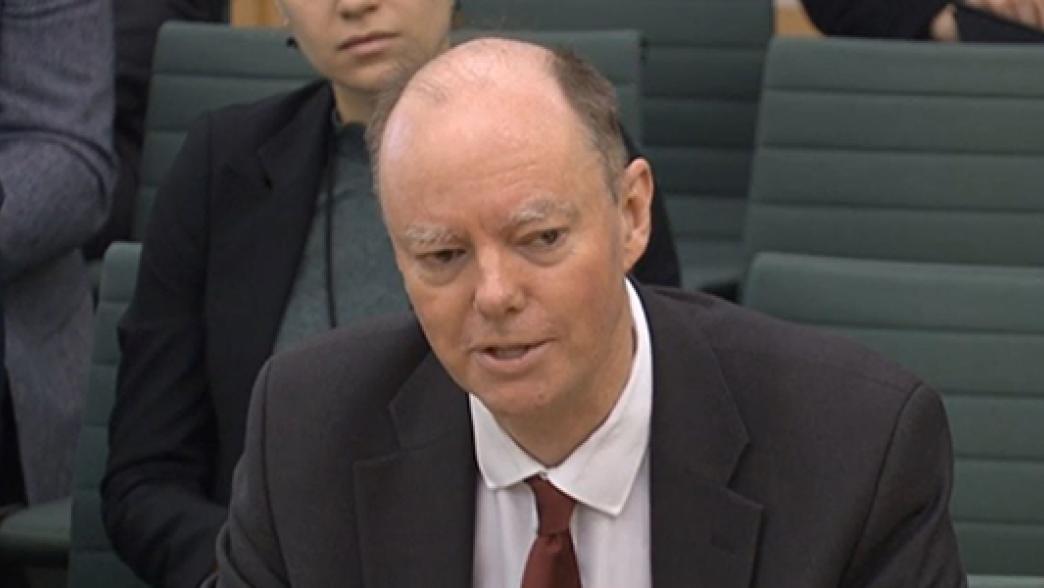Chief medical officer
The chief medical officer (CMO) is the most senior government adviser on health matters.

Who is the chief medical officer?
The chief medical officer (CMO) is the most senior government adviser on health matters.
The CMO is an externally recruited qualified medical practitioner and a member of the senior civil service, equivalent to permanent secretary level.
There are four chief medical officers in the United Kingdom: Professor Chris Whitty, the CMO for England and to the UK government; Dr Michael McBride the CMO to the Northern Ireland executive; Dr Gregor Smith, the CMO to the Scottish government; and, Dr Frank Atherton the CMO to the Welsh government.
Professor Whitty was appointed in June 2019. He is also currently chief scientific adviser to the Department of Health and Social Care (DHSC). He was previously chief scientific adviser at the Department for International Development. During this time, he played a leading role, with the then CMO Professor Sally Davies, in advising on the UK response to the Western African Ebola virus epidemic.
He is an epidemiologist and was previously professor of public and international health at the London School of Hygiene and Tropical Medicine.
When was the post created?
The role was established in 1855, when Sir John Simon was appointed the first medical officer for the General Board of Health, which was responsible for advising on public health matters, such as epidemics and disease prevention.
What is the chief medical officer’s remit?
The chief medical officer is the country’s most senior medical adviser, providing advice to the secretary of state for health and, when necessary, the prime minister. The CMO is also the head of the public health profession and represents it within government.
The role has three overarching responsibilities: to provide independent advice on public health issues, in particular during public health emergencies; to recommend policy changes to improve public health outcomes; and to act as an interface between the government and medical researchers and clinical professionals.
The CMO plays a prominent role in supporting the government’s response to public health emergencies. Alongside ministers, the CMO is responsible for keeping the public informed on health issues of high public concern and explaining the government’s response.
The CMO has a statutory duty to produce an annual report on the state of public health and to support work to improve public health across England. This provides both a survey of public health, and a detailed analysis of one or more specific public health issue, where the CMO believe policy intervention is required.
The CMO represents the UK international on public health issues and in global health institutions such as the World Health Organization (WHO).
Who does the chief medical officer report to?
The CMO is a civil servant with statutory responsibilities, reporting to the permanent secretary in the Department of Health and Social Care (DHSC). However, the CMO has a more independent status in government than most civil servants. CMOs have at times publicly criticised government policy, for example on minimum alcohol pricing. Unlike most civil servants, the CMO has a considerable public profile. They engage actively with the public and the media, particularly during health emergencies.
The CMO regularly gives evidence to parliamentary committees on a range of health issues. On 5 March, Professor Whitty updated the Health and Social Care Committee on UK preparations to deal with the possible impact of the coronavirus outbreak.
In the 2015–17 and 2017–19 parliaments, the House of Commons Science and Technology Committee conducted one-off inquiry sessions to take evidence from the CMO. These reviewed the role of the CMO, how this links with the Department of Health and Social Care’s chief scientific adviser, health research funding and other health research matters.
What resources does the chief medical officer have?
The CMO is supported by one or more deputies and civil servants in the Department of Health and Social Care (DHSC). He or she is a member of the DHSC board and sits on its executive committee.
The CMO can draw on the advice of over 30 standing expert committees within the Department of Health and Social Care, comprising medical professionals, academics, officials and lay members.
Several of these committees provide scientific risk assessment and mitigation advice during public health emergencies such as the coronavirus outbreak. These include the New and Emerging Respiratory Virus Threats Advisory Group, the Advisory Committee on Dangerous Pathogens, the Scientific Pandemic Influenza Group on Modelling, and the Joint Committee on Vaccination and Immunisation.
What is the chief medical officer's role in a public health emergency?
The CMO plays a leading role in advising on the national response to public health emergencies and attends COBR meetings on health issues. The CMO co-chairs the Scientific Advisory Group for Emergencies (SAGE) with the government’s chief scientific advisor. SAGE is responsible for ensuring that a single source of co-ordinated scientific advice is provided across government and into COBR.
The CMO can also set up ad hoc advisory groups in response to a public health emergency. During the Ebola outbreak in 2015, Professor Davies set up the Ebola Scientific Assessment and Response Group to draw in additional expert advice on specialist issues relating to the disease.
The CMO plays a key role in working with the Department of Health and Social Care public health agencies, and the National Health Service, to convert the scientific advice from expert committees into a policy response.
- Topic
- Coronavirus Civil service
- Keywords
- Health Civil servants
- Department
- Department of Health and Social Care
- Public figures
- Chris Whitty
- Publisher
- Institute for Government